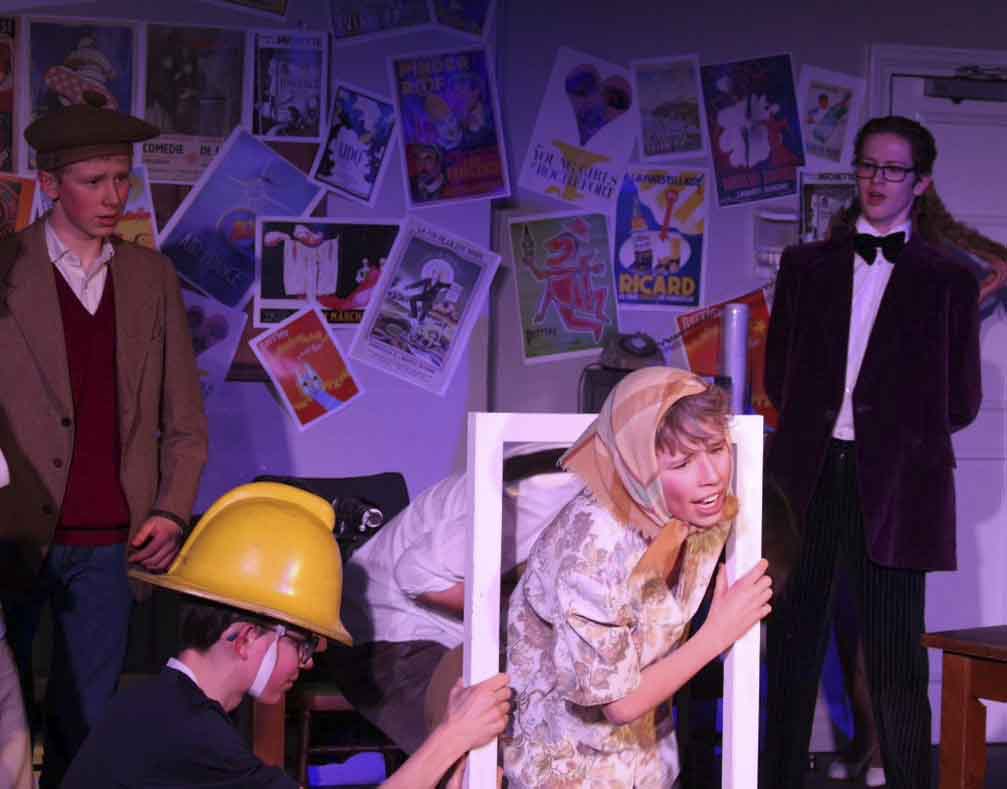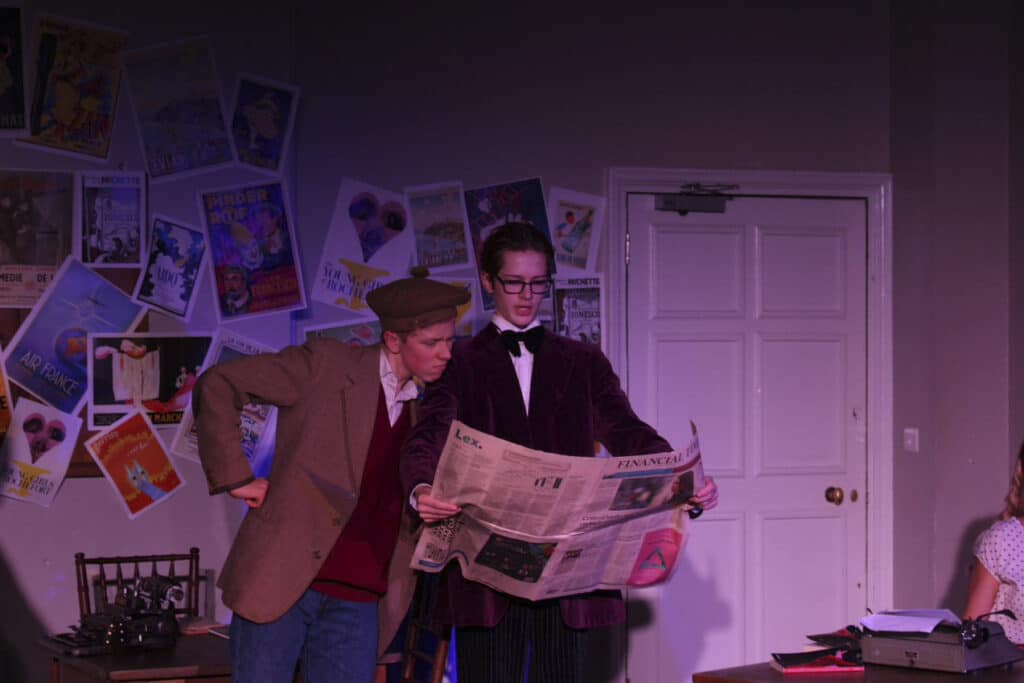In an age of mobile phones and social media, one might think that meaningful communication had improved. Mass communication has, after all, given us the ability to identify and call out issues more easily than ever before. But as the Waynflete House production of Ionesco’s Rhinoceros revealed, perhaps we are trading off our faculty to meaningfully communicate in a world where opinions can be morphed so easily.
The play opened in a café, where Berenger (Will H) and Jean (Finn S) sought to discuss a matter. Yet they fail to do so as, immediately, Berenger’s appearance and alcoholic tendencies become the focus of discussion. However, a rather curious sight soon occurs – a rhinoceros charges through the town square, attracting the attention of all the café-goers. Though there’s debate about the type of rhinoceros that appears, soon another comes.
Then, we are taken to an office, where disputes arise about the animal sightings. We are introduced to Dudard, Botard, and Berenger’s love interest, Daisy, before a rhinoceros soon destroys the staircase to exit the building. The audience then discovers that the rhinoceroses are not animals escaped from the zoo, but people transformed. Berenger’s friend Jean soon succumbs to the ‘rhinoceritis’, and then Dudard. Daisy and Berenger confess their love for each other and enjoy moments of bliss. It does not last – eventually, the pressure of conforming reaches Daisy, and Berenger is left alone as she too transforms. After attempting to convert, Berenger, the last human, regains his willingness to fight against the rising tide of rhinoceroses, stating ‘I will not capitulate’.
The play featured a host of strong and wildly comic performances. Will H gave a very strong performance as Berenger, managing to balance anguish and comedy. His sympathetic and impactful performance worked delightfully alongside Finn’s more stern and exacting Jean – indeed, it was an impressive display of physical and vocal skills as we watched his slow transformation into a beast. Lucas M, a veteran of the stage, played Daisy with wonderful assurance and warmth. A special mention must be given to William B, playing the waitress of the café, whose rampant alcohol consumption provided comedy gold.
Ionesco’s play is provocative and thought-provoking. Being initially intended as a metaphor for the spread of Nazism and antisemitism, it was a wonderfully creative and successful move from Mr Haighton to weave in contemporary ideas of social media and herd mentality. It asked each of us whether, as much as we’d like to think of ourselves as Berenger, how far do we fail to communicate accurately and merely succumb to the tide of popular belief?





